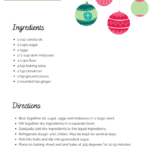Instead of starting another diet this year, or doing nothing since you’ve come to the conclusion that diets don’t work, how about changing your environment to get to a healthy weight in the New Year?
Dr. Brian Wansink of Cornell’s Food and Brand Lab studies the psychology behind why and what we eat.
Research shows that we don’t really know why we do what we do. He says the average person makes 200 food choices a day, but is aware of about 15. His research is fascinating. He did a study on taste where he told subjects they were going to judge strawberry yogurt and there were 2 containers of strawberry yogurt in front in front of them.
He blindfolded them and gave them vanilla yogurt with chocolate syrup stirred in and asked them questions.

They ALL thought they were tasting strawberry yogurt! They made comments such as one having a “stronger strawberry taste”.
Our taste seems to very influenced by cues.
He has also studied people at a Chinese buffet. While many people think it’s impossible to go to a buffet and not overeat, about one-third of people there are slim. He studied their behavior and found that the 73% of slim people walk around and look at the food tables before picking up a plate.
The heavy diners got a plate right away and started putting a little of everything on it. Slim people also sat on average 16 feet further from the buffet table and were 3 times as likely to face away from the food. They used smaller plates and ate more slowly.
Dr. Wansink’s book, “Slim By Design-Mindless Eating Solutions” has a 100 point score card to assess different aspects of our environment (home, work, etc).
His research is translated into simple changes that people can make to be slimmer.
For instance, if you keep fruit in an attractive bowl on your kitchen counter, within a couple feet of your path, you will be an average 8 pounds lighter than your neighbor. If you have cookies or chips on your counter you’ll be 8 pounds heavier.
Dr. Wansink’s research also shows that making one small change can have a ripple effect. 2000 study subjects were assigned one change to make for 3 months. There were 100 people per group and 20 groups (changes). There were differences in the outcomes, but on average the subject lost 6 pounds in 3 months from making the one change. But the researchers found something very surprising that was puzzling at first.
The subjects rate of loss increased as time progressed.
In other words, the subject did not lose 2 a month for 3 months. They lost 1 pound the first month, 2 pounds the second month, and 3 pounds the third month. Eventually, in talking to the subjects, it was discovered that making the one change that was relatively easy motivated them to make other changes.
Try picking just one behavior that you think will be beneficial to you and that you are pretty confident you can achieve. It will likely be the start of a healthier lifestyle.






wonderful article thanks for sharing the great information